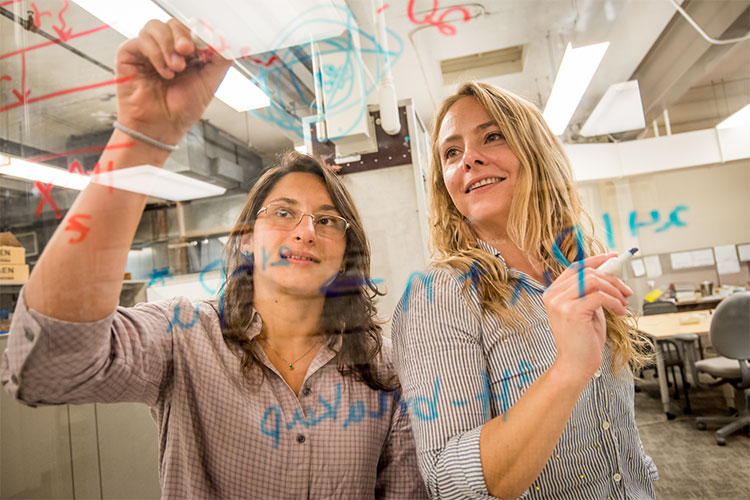

A five-year, $25 million grant from the U.S. Department of Energy’s National Nuclear Science Administration (NNSA) will keep UC Berkeley at the helm of a multi-institution consortium dedicated to advancing research in nuclear science and security and training the next generation of nuclear scientists and engineers.
This is the third time the NNSA has tapped Berkeley to lead the government’s Nuclear Science and Security Consortium (NSSC), which brings together nuclear scientists and engineers from 11 universities and five national labs.
“In the face of the pandemic, nuclear security challenges may seem remote, but the risks posed by nuclear proliferation and radiological terrorism remain extremely relevant,” said NSSC Executive Director Bethany Goldblum. “Along with our national laboratory partners, our consortium plays an important role in advancing capabilities to prevent the spread of nuclear materials and related technologies, as well as in the basic science underlying these advancements.”
Since its founding in 2011, the NSSC has contributed to fundamental nuclear science research, as well as to the development of new technologies in radiation detection and nuclear engineering.
Through fellowships, scholarships and a broad collection of research internships, workshops and summer schools, it has supported and trained more than 500 undergraduate and graduate students, postdocs, specialists and faculty. It has placed nearly half of these students and postdocs in positions at Department of Energy national laboratories or other government agencies.
“A strong pipeline of new technical talent for our laboratories is critical to our mission of supporting U.S. national security objectives in reducing global nuclear security threats,” said Kasia Mendelsohn, acting deputy administrator for defense nuclear nonproliferation, in an NNSA press release describing the award. “Over the past decade, nearly 500 degrees have been awarded through our three university consortia, resulting in more than 140 new career placements at the national laboratories. I am confident the Berkeley-led team will build on their past success and continue to produce an effective return on agency investment.”
The consortium has also had success attracting women to the field and placing them in STEM careers. More than 30% of NSSC fellows are women, and many women, including Goldblum and NSSC Director Jasmina Vujic, play leadership roles in the organization.
The new iteration of the consortium will build upon its current work, while also extending into new research focus areas, including nuclear chemical engineering, artificial intelligence and machine learning. It also aims to expand its junior faculty, with an eye on diversity and inclusion.
“UC Berkeley brings expertise in many of the research areas relevant for the nuclear security professional,” Goldblum said. “This, as well as UC Berkeley’s proximity to the national laboratories, makes us a natural partner for establishing and fostering collaborative research relationships”Read the full press release on the NNSA website
ShareFEB
